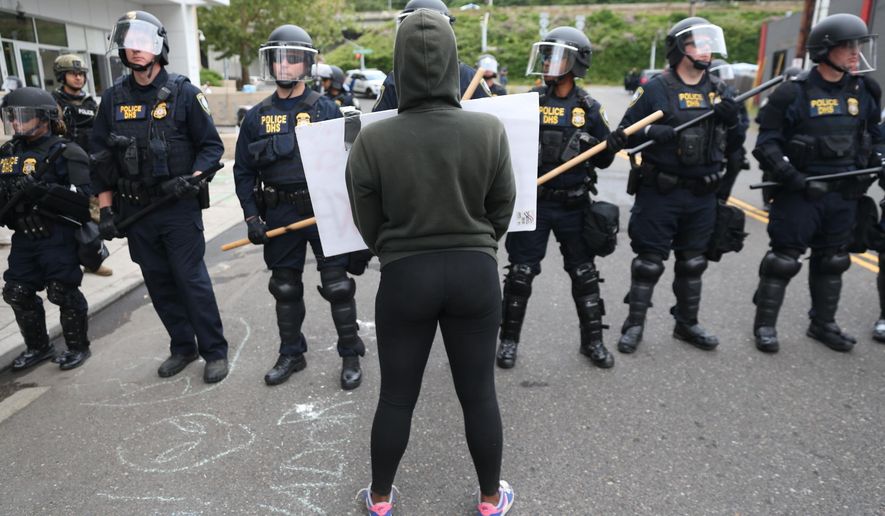ICE officers asked the mayor of Portland, Oregon, to give up control of the city’s police department and sent letters Wednesday requesting federal and state investigations over his handling of Occupy ICE protests this summer.
Portland’s protests were among the most chaotic and violent of nationwide efforts against U.S. Immigration and Customs Enforcement. They lasted weeks and forced the ICE office in the city to shut down.
The National ICE Council, the union that represents ICE officers, said Mayor Ted Wheeler fueled the confrontations by expressing support for the protesters and in public and private statements made clear to police that they were to stand down, ignoring some 911 calls from agency employees being menaced by the protests.
The ICE Council told Attorney General Jeff Sessions that Mr. Wheeler’s directives violated those employees’ civil rights, leaving them without protections he is required to provide.
In a separate letter to Oregon Attorney General Ellen Rosenblum, the ICE Council’s attorney said the mayor broke state laws against “official misconduct” by telling police to ignore ongoing crimes among the protesters.
“Instead of faithfully executing his oath of office and pledge to support the constitutions of the United States and Oregon, as well as the laws of Portland, Mayor Wheeler chose to leave his fellow citizens to fend for themselves for over a month against a lawless mob, which included violent militant groups,” said Chris Crane, president of the national union.
The ICE Council said Mr. Wheeler’s leadership of the police has been tainted and called for him to give up control for now.
“Our hope is that Mr. Wheeler relinquishes his supervisory authority of the Portland Police Bureau pending the outcome of your investigation,” Sean J. Riddell, the union’s attorney, said in the letter to the state attorney general.
A copy was provided to the mayor.
He took to Twitter to respond, calling himself a political martyr. “Make no mistake. They are coming after me because I am a vocal opponent of the administration’s policy of separating kids from their parents,” he tweeted.
He said past claims by the ICE Council “have fallen apart upon further investigation and these claims, if investigated, will too.”
Kristina Edmunson, communications director for Oregon’s attorney general, said they have received and would review the letter.
She didn’t respond to questions about what such an investigation might look like.
Texts and emails obtained by the ICE Council detailed Mr. Wheeler’s stand-down directive to the Portland Police Bureau.
“Here’s where our office stands: The mayor will provide strategic direction to PPB. He will not dictate tactics[;] we will leave that to the expertise of PPB. In this case, the mayor’s strategic direction is for PPB to not get involved unless lives are in danger,” read one text that the ICE officers obtained.
A follow-up email showed the police concluded that they were not to “proactively patrol” the protest, and would respond only to calls “that have an immediate life safety concern.” That meant ignoring calls from ICE employees trying to get their cars out of parking lots blocked by protesters unless they felt they were specifically threatened, the email said.
The ICE Council says that crosses the line into official misconduct.
“If a rank-and-file police officer was presented with an on-going crime for 30 days and did not take appropriate action that officer would be placed on administrative leave and subject to an internal investigation,” Mr. Riddell wrote.
Mr. Crane said he tried to work things out with Mr. Wheeler directly over the summer, when his attorney sent a cease-and-desist letter to the mayor.
In a July 31 response Mr. Wheeler disputed the ICE officers’ version of events.
He denied there was a policy of refusing to answer calls from ICE employees — though he said it was up to the federal government to police its own property in the city.
Mr. Wheeler said he didn’t want his officers “to be engaged or sucked into a conflict for the purpose of securing federal property that houses a federal agency with their own federal police force.”
• Stephen Dinan can be reached at sdinan@washingtontimes.com.




Please read our comment policy before commenting.